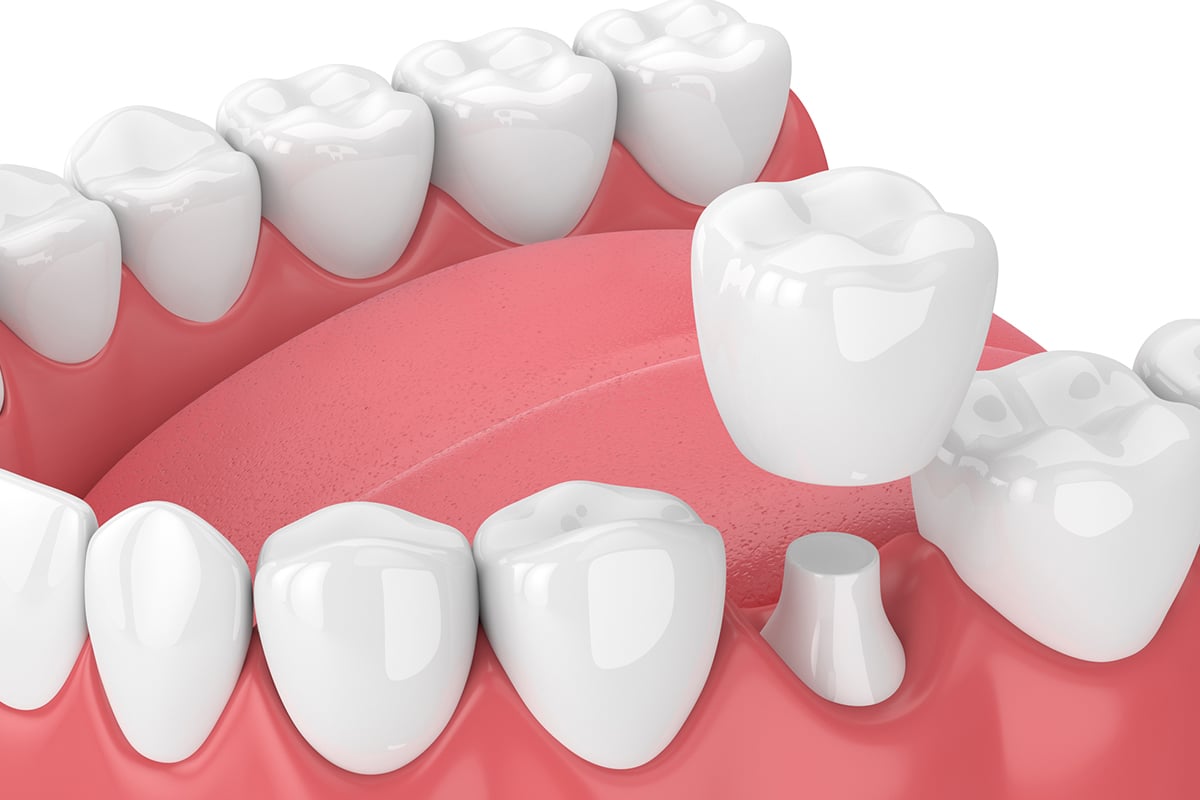
Dental crowns are durable, long-lasting restorations that cover and protect damaged teeth. They generally last between 10 and 15 years, though with proper care, they could last a lifetime. This blog provides a complete guide to dental crowns and shares how you can help your crowns last longer.
Uses of Dental Crowns
Dental crowns are a versatile restoration with many possible applications:
- Restore teeth that are too damaged to receive a filling due to breakage or decay.
- Restore a discolored tooth for aesthetic reasons.
- Prevent weak teeth from breakage
- Provide a strong attachment point for dental bridges.
- Protect and restore a tooth that has undergone a root canal.
How Dental Crowns Work
A dental crown, also called a cap, fits over a prepared natural tooth. It strengthens and restores the damaged tooth.
Step 1: Impressions
First, your dentist takes digital or physical impressions to help your new crown match your original tooth.
Step 2: Preparation
Your dentist removes decayed material and smooths rough or broken edges. This simple process generally requires only local anesthesia.
Step 3: Impressions
After preparation, your dentist will take a second set of impressions to ensure the crown fits the prepared tooth.
Step 4: Fabricating the Crown
Your dentist sends the impressions to a laboratory for crown design and fabrication.
Step 5: Adjustments
Your dentist will adjust the crown and the opposite teeth to provide a natural, comfortable bite.
Step 6: Final Placement
Your dentist cements the crown in place and ensures it functions appropriately.
Material Choices for Dental Crowns
Dentists have several options to choose from:
- Ceramic: Made of advanced materials, ceramic crowns are durable and attractive.
- Porcelain: These crowns appear the most natural, so many patients prefer them in the front of the mouth. They are durable and stain-resistant.
- Metal: Some patients prefer metal crowns on molars because they withstand grinding. Metal crowns can also have a porcelain coating that improves their appearance.
- Gold: A gold alloy crown is the most durable but also the most costly.
Advantages of Dental Crowns
Restore the Tooth's Full Function
Dental crowns feel very much like natural teeth. You can chew nearly all foods normally.
Keep Natural Roots Intact
In general, dental professionals prefer to leave the original roots in place because they keep the jawbone strong and protect your oral health. Dental crowns restore teeth without interfering with the natural root system.
Restore a Healthy Appearance
Broken and discolored teeth can affect one's self-confidence. A new crown that matches the original, undamaged tooth can complete one's smile.
Factors Affecting The Longevity of a Dental Crown
- Material: Metal and gold alloys are the most durable crowns, followed by ceramic.
- Position: Crowns endure more pressure in the back of the mouth, where most chewing takes place.
- Dental Bite: If you have an uneven dental bite, your crowns may receive uneven pressure and become prone to cracking.
- Oral Hygiene: Ensure that you brush and floss as recommended. Take special care to floss around your dental crowns. Keep all regularly scheduled dental appointments.
- Seek Dental Care: If you have a problem with your crown or if it falls out, see your dentist as soon as possible for a repair or replacement. If you address the issue promptly, your dentist can often cement the crown back in place.
Tips to Protect Your Dental Crown
Address Teeth Grinding
Bruxism (chronic teeth grinding) can weaken crowns, especially with an uneven dental bite. If you grind your teeth, ask your dentist for a custom mouthguard to protect them from damage.
Choose Foods Carefully
You should be cautious when eating hard and sticky foods like nuts and caramel. These foods can break or dislodge your crown. Chew these foods on the other side of your mouth, or avoid them entirely.
Keep Your Crown Clean
Excellent oral hygiene keeps your crown, gums, and the surrounding teeth in the best possible condition.
Frequently Asked Questions About Dental Crowns
Will I experience any discomfort after getting a new crown?
New crowns take about a week to settle. Your gums also need time to adapt to the new crown. You may experience minor discomfort for up to two weeks, but if you continue to feel it, contact us immediately to resolve the issue.
At Perfect Smile Dental Studio, we specialize in restoring healthy smiles. We can create dental crowns to protect and restore your teeth. Please contact us at our Lutz, FL, office to schedule your consultation today!


